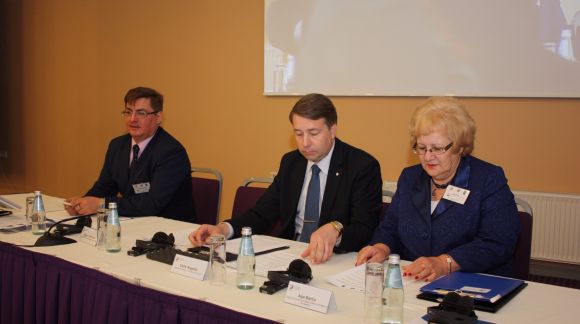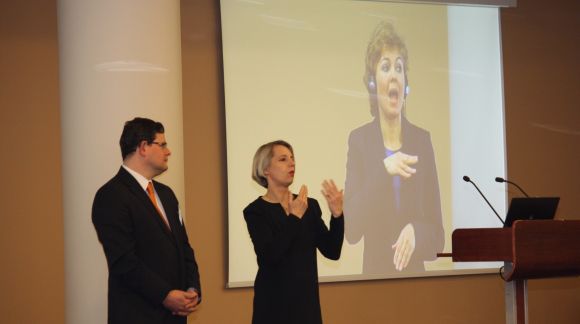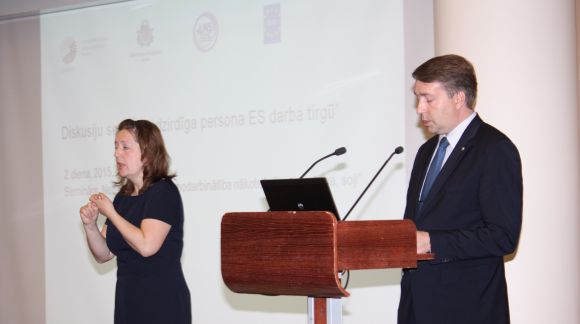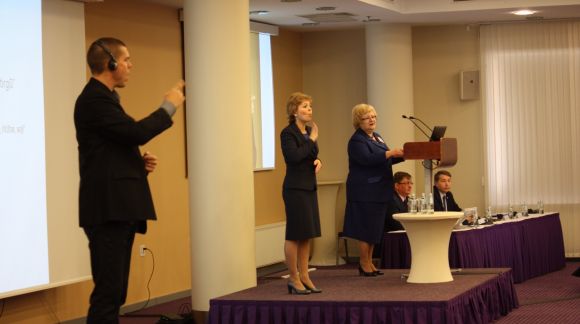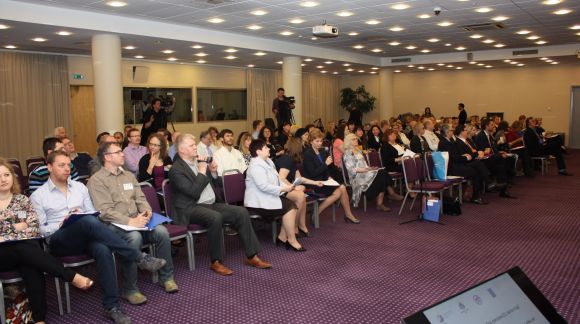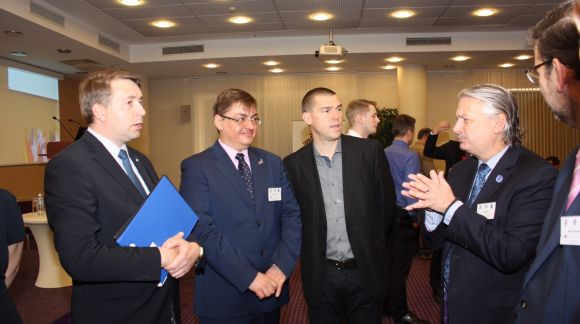Workshop on „Employment and the Freedom of Movement" was held on 14 May by the Latvian Association of the Deaf where based on the experience and current situation in Latvia and other EU Member States and on the current situation the discussions on the employment challenges for people with hearing disability and the ways and methods of developing an inclusive labour market were held.
The discussion participants reported on the performance of public organisations in order to contribute to the employment of people with disabilities in order to raise their quality of life. The discussions led to conclusion that in the future, governments, public organisations and cooperation partners need to focus on social entrepreneurship, geographic and professional mobility and the competitiveness of education of people with hearing disability in the common labour market of the European Union. The employment challenges from the point of view of the UN Convention on the Rights of Persons with Disabilities were especially addressed.
The issues addressed at the workshop served as a basis for further discussion that was held on 15 May during the "Inclusive Labour Market" seminar. At the seminar, Minister for Welfare Uldis Augulis emphasised that in tackling the employment problems of people with disabilities, at present, focus is placed on the identification of abilities of people rather than on stressing their functional disabilities.
A member of the Saeima and the Chair of the Employment and Social Affairs Committee Aija Barča noted that it is important to view the problem as a whole paying attention also to better access to education, investment in education, sign language interpreter services, tax reliefs for employers, etc.
The members of the European Parliament and the Co-presidents of the Disability Intergroup, Ádám Kósa and Helga Stevens, emphasised during the seminar that hearing disability is not as visible as other types of disability; therefore, the society may not even be aware that some people need assistance. Achieving a world without barriers by using modern technologies and sign language interpreter services available daily and by tackling employment problems is a challenge of the society for the future in all countries.
The representative DG Employment, Social Affairs and Inclusion of the European Commission Tania Tsiora emphasised that employment of people with disabilities is an important issue in European policies, especially taking into consideration the UN Convention on the Rights of Persons with Disabilities.
Gunta Anča, the Vice-president of the European Disability Forum and the President of the Latvian Umbrella Body for Disability organisations SUSTENTO pointed out that the support solutions offered by responsible institutions had to be differentiated.
The representatives of the European Union of the Deaf (EUD) presented a publication prepared by EUD on best practice examples in tackling employment issues in European countries.
The Latvian Association of the Deaf analysed the results of a study on employment problems for young deaf people in Latvia, which stated that greater support was necessary in tackling the unemployment of young deaf people to make professional education more available and to provide greater accessibility of sign language interpreter services for acquiring education. According to the study, young people consider hearing disability and communication problems the most essential barriers to employment.
On 16 May, opportunities and necessity for deaf persons to express their experience and provide information about the employment problems, occupational and professional mobility of people with hearing disability at all policy levels were discussed during the final session "Employment of the Deaf in Future. Approaches, Actions, Steps".
The President of the European Union of the Deaf Markku Jokinen pointed out that deaf persons have to be socially more active, they have to bring into politics the representatives who are well aware of the problems of people with hearing disability and much more discuss the availability of support for education and sign language interpreters and the attitude to people with functional impairments in the labour market. The President of the World Federation of the Deaf Colin Allen, continuing the discussion on the UN Convention on the Rights of Persons with Disabilities, stressed that in order to achieve sustainable improvements, it is important to identify the most essential problems to be tackled jointly both in Europe and in the world.
"Active for the Future" is a state-funded project, organised by Latvian Association of the Deaf.



